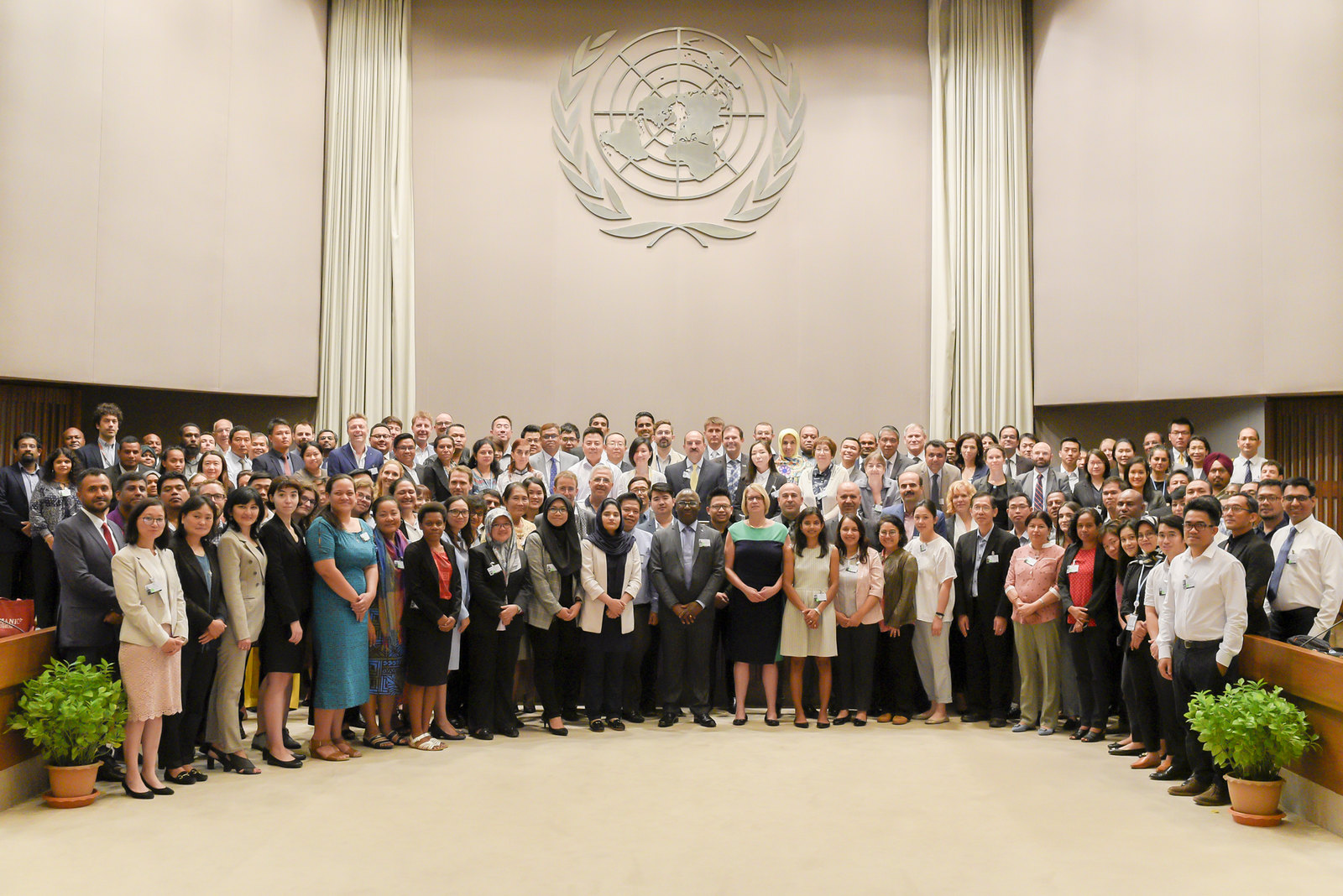Asia-Pacific Climate Week kicks off in Bangkok
terça-feira, setembro 03, 2019
 |
| Day 1 of Asia-Pacific Climate Week (Image: UNclimatechange) |
In the run up to UN climate talks in December, regional participants will be focusing on how to translate commitments into action
Participants at this week’s Asia-Pacific Climate Week (APCW), which runs from 2-6 September in Bangkok, are hoping it will build momentum on climate action ahead of the New York climate summit later this month and the UN climate talks in Chile in December.
“Bangkok’s APCW will gather thousands of stakeholders from the region to exchange their real experiences and best practices on climate action, which will be a significant input for New York’s Climate Summit,” said UNFCCC’s Jens Rodschinski, head of the Regional Collaboration Centre in Bangkok.
He emphasised that the talks will be on “how to translate climate commitments into action”, so that meaningful commitments can be made at the UN talks in Chile. “Today’s issue for climate action is how to make it faster. We don’t want [climate actions] in 2050, we need them now,” he added.
Paying for climate change
The urgency of climate change action was emphasised in the August release of the Asia-Pacific Disaster Report 2019. It noted that disaster risks in the Asia-Pacific region will be “growing in intensity, frequency and complexity”, and “exceeding the region’s capacity to respond”.
“In 2018, almost half of the 281 natural disaster events worldwide occurred in the region, including eight out of the ten deadliest. An average of 142 million people in the region have been affected annually since 1970, well above the global average of 38 million,” according to the report.
It put the economic costs of such natural disaster events in the region at US$675 billion annually, or around 2.4% of the region’s GDP.
High expectations
Asia Pacific Climate Week is one of three regional climate platforms organised annually, with the other two concerning Africa and Latin America. It’s a place where grassroots organisations, local communities, NGOs, policymakers, academia and businesses can exchange views, according to UNFCCC’s Rodschinski.
The Bangkok discussions will focus on five areas: energy and industry transition, infrastructure, cities and local action, resilience and adaptation, and nature-based solutions.
The “high-level segment” of APCW will be attended by senior government and UN officials, including Peter Thomson, the United Nations special envoy for the ocean.
Local participants
Wanan Permpiboon, coordinator of Climate Watch Thailand, says the group will be focusing on Chinese investment, especially in stranded coal assets and subsidies. The nationally determined contributions (NDCs) of ASEAN countries will also be considered.
“There are many innovations that need to be scaled up to reach the Paris Agreement and increase ambition in NDCs,” she said.
Kollawat Sakhaakara of the Thailand Office of Natural Resource and Environment Policy and Planning expects to discuss how to achieve Thailand’s NDCs efficiently. Thailand committed under the Paris Agreement to reduce greenhouse gases by 20% by 2030. Since Thailand faces significant risks from climate change, he’ll also be focused on discussions around adaptation and mitigation.
APCW is smaller than the other regional events but growing in popularity according to Rodschinski. There are 1,100 registered participants so far, but this could reach some 1,500. “This is already exponential growth compared to the past year for APCW,” he said.
Page: China Dialogue


















0 comentários
Agradecemos seu comentário! Volte sempre :)